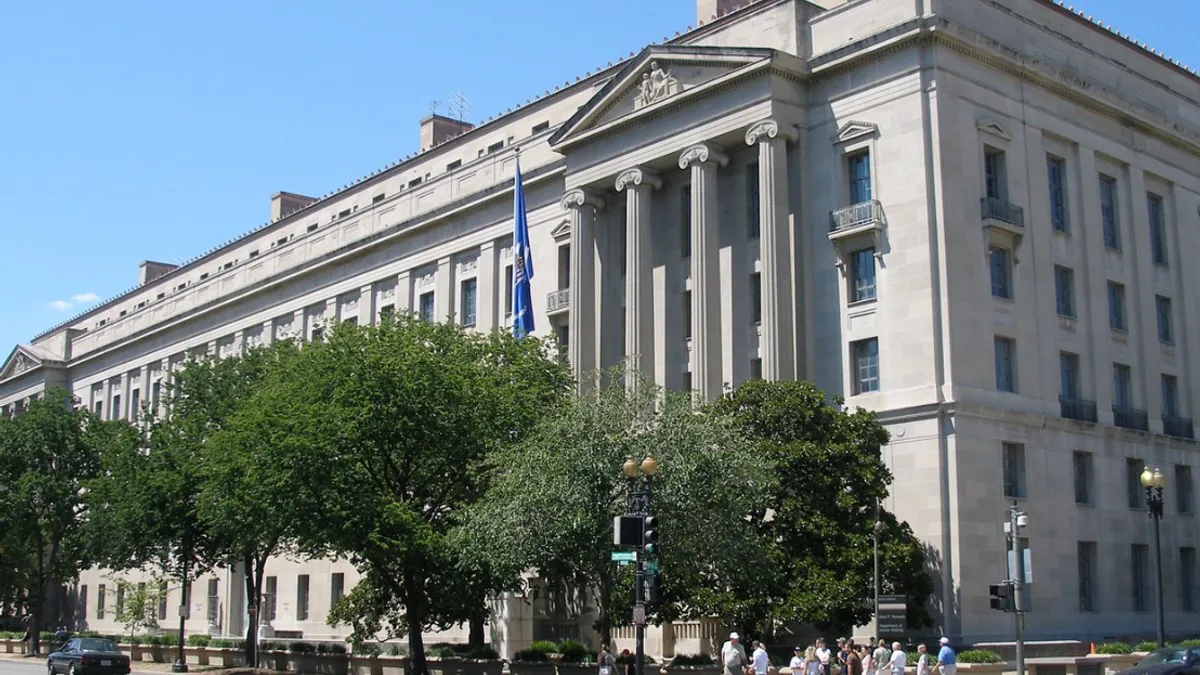The U.S. Department of Justice is urging the Supreme Court to not hear a case on whether a private charter network running a public charter school is ultimately accountable to the same civil rights laws as traditional public schools, according to an amicus brief filed for the case on Monday.
The case, Charter Day School, Inc. v. Peltier, initially arose in 2016 after parents at a North Carolina charter school challenged a uniform policy preventing girls from wearing shorts or pants. They claimed the policy, which required girls to wear skirts, was sex discrimination under Title IX.
The Fourth Circuit Court of Appeals and Eastern District Court of North Carolina initially disagreed over whether dress codes were subject to Title IX and whether the charter school operator, a private entity, is subject to Title IX requirements when adopting policies such as dress codes in its capacity as a public charter school.
Ultimately, Charter Day School asked the Supreme Court to review a June 2022 decision from the Fourth Circuit that found the charter was a state actor.
Now, the Justice Department is saying that the case should not be reviewed by the highest court, partly because it is the wrong case to settle the question of whether a private nonprofit entity authorized by the state to operate a public charter school is a state actor subject to federal constitutional requirements.
This is because North Carolina state law already considers all charter schools as public schools.
The court should instead "await a case from a State that has not already chosen, as a matter of state law, to subject its charter schools to federal constitutional requirements," the Justice Department said in its brief.
If the case is taken up against the Justice Department's recommendations, it could influence other school choice issues such as how and whether religious charter schools should operate.
The National Alliance for Public Charter Schools said in a press release on Monday that it agrees with Solicitor General Elizabeth Prelogar — who filed the brief — and that the Supreme Court should not take up the case.
Nina Rees, president and CEO of NAPCS, said nearly 70% of students served by charter schools nationwide are Black and brown children, and "having the same constitutional and civil rights protections as their district public school peers is fundamental and non-negotiable."
In its request for a Supreme Court hearing, the Charter Day School corporation said "charter-school operators are broadly empowered" to create policies and practices without influence from the state.
"They are generally exempt from the laws and the governmental chain of command that apply to traditional public schools and are governed instead by a charter contract with the State that imposes high-level performance and fiscal benchmarks," the petitioners stated.
However, Rees said that while charters are "free of many of the administrative burdens that come with being part of a school district," they are still required to provide civil rights protections to their students. Rees added it's possible for "these unique public schools" to both adhere to the Constitution and be innovative.
The Supreme Court has not yet announced whether it will take the case, but that could be decided sometime this year.












